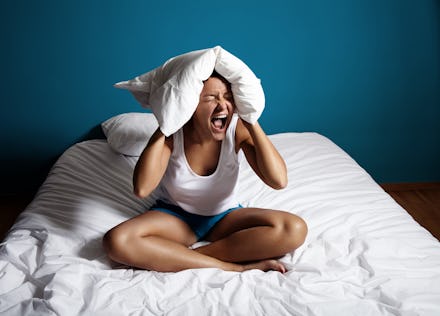3 ways you get ripped off daily and don't know it: What the MyPillow scandal teaches us

The latest outrage to take social media by storm? Not a Donald Trump tweet — nor a foot-in-mouth moment from a celebrity.
It's about a pillow company.
More specifically, it's a controversy surrounding retailer MyPillow, and it's one of the top trending topics for Thursday, according to Trendinalia.
Until recently, MyPillow seemed to be about as innocuous a company as they come — it manufactures in the United States and for awhile enjoyed an A+ rating from the Better Business Bureau. And it, um, makes pillows.
Not sex pillows. Regular pillows.
But that all changed when the BBB revoked MyPillow's accreditation in December and then lowered the company's rating to an F, according to a Tuesday BBB press release.
Why? It has to do with the company's "buy-one-get-one-free special" costing $89.97.
The company is accused of using deceptive advertising because the so-called "special" never expires — meaning it's almost like you're just being told the price of two pillows, not some special discount.
Plus, while the company price for two is about $90, you can actually get one of the same MyPillows for about $50 on other retail sites.
So it's not buy-one-get-one-free: It's more like "buy one $50 pillow and then get another one for $40."
That's a 20% discount instead of 50% one.
Womp womp.
MyPillow CEO Michael Lindell said in a statement on Twitter that he was "disappointed" in the decision. In an email to Mic, Lindell said that "we will start running new ads, with new offers in the next couple of weeks."
But this is not the only time MyPillow has come under scrutiny for its practices. In November 2016, the company agreed to pay $1 million over suits filed because of advertising insinuating the pillows provided medical benefits — like curing snoring and migraines.
Lindell denied any wrongdoing, arguing that he was just using happy customers' testimonials making the claims, not making the claims himself.
Now, you might be a savvy enough consumer to not fall for random medical claims in online testimonials. But let's be honest: You probably fall for other versions of this marketing trick — like those fancy skin regimens you order online that are barely better than what you'd get from a drug store.
Indeed, there are several lessons to be learned from the MyPillow debacle.
Here are a few things you can do to protect yourself from "deals" — that aren't actually deals at all.
Retailers know you won't bother to Google for price comparisons
The 230+ people who complained about MyPillow might have been able to avoid their situation if they'd just done a few quick internet searches for product reviews and price data before hitting "purchase."
This is smart shopper advice 101: Take two seconds and Google that product.
In fact, there are programs that will do this simple step for you — a big win for the laziest shoppers among us.
Chrome extensions like Honey or PriceBlink, for example, allow you to pull up comparable offers from other retailers automatically.
You aren't doing the easy math — and companies take advantage
MyPillow benefitted from the fact that most people shy away from doing math.
Sure, doing the simple algebra that helps you distinguish a 20% discount from a 50% one might hurt your brain at first — but if you start forcing yourself to do it, it gets easier.
Too much work?
The lazy-person version of this is to simply ask more questions. For example, grocery stores sometimes offer deals like "buy two for $5" — but the actual unit cost is just $2.50.
That's no bulk discount, just the insinuation of one to get you to buy more than you normally would.
So next time you see an offer like that, ask at the register what just one OJ bottle would set you back.
Online, there are tools to make detecting bogus sales easier: One is called CamelCamelCamel, and lets you examine price histories on Amazon.
Packaging tends to be sneaky
One last criticism of MyPillow? Allegedly deceptive packaging: The BBB noted that some of the company's standard pillows were shipped in boxes featuring images of a more premium product.
But that's not the only way packaging can be sneaky.
There's the old "bigger bag — fewer potato chips" trick.
And there's this newer and surprisingly effective trend toward smaller packaging. One of Coca-Cola's savvy responses to a declining appetite for sugary sodas was to sell the soda in tiny cans: Research suggests that smaller packaging can actually psychologically sway people to buy more soda overall.
As for the future of MyPillow?
The company might get a second chance, but it has to clean up its act first, said BBB senior vice president of Minnesota and North Dakota Barb Grieman in an email to Mic.
"BBB's goal is for the company to do the right thing and make changes to their ads – and we hope they do," she wrote. "If they made the necessary changes, BBB would most likely monitor their ads for a 6 – 12 month period and then let our BBB Board of Directors decide on whether to allow accreditation again for the company."